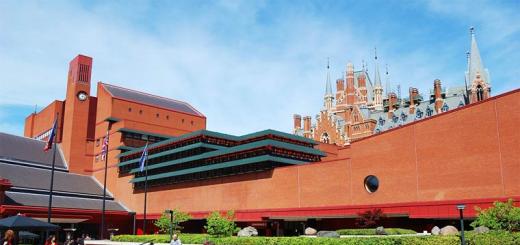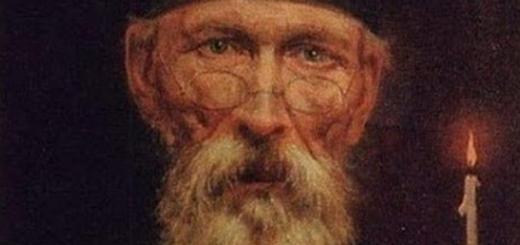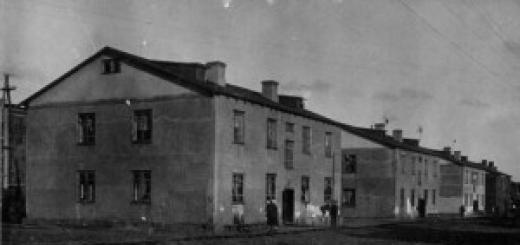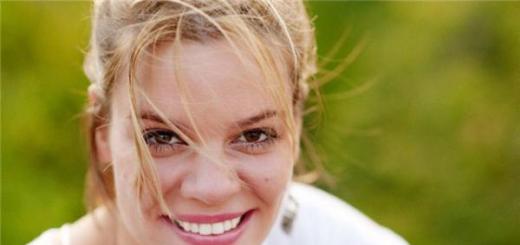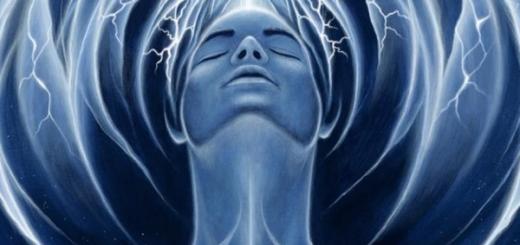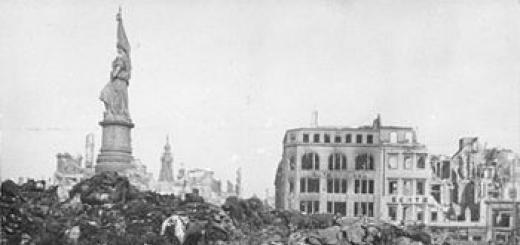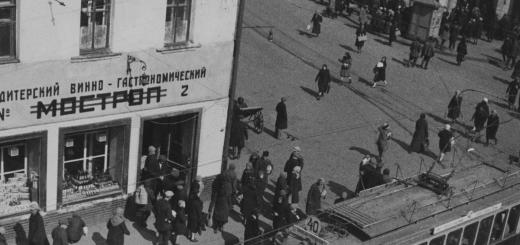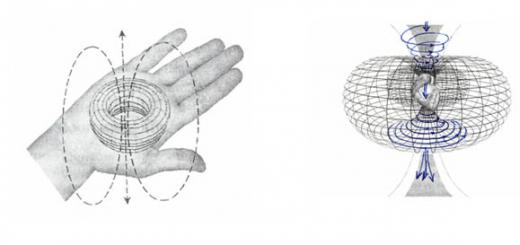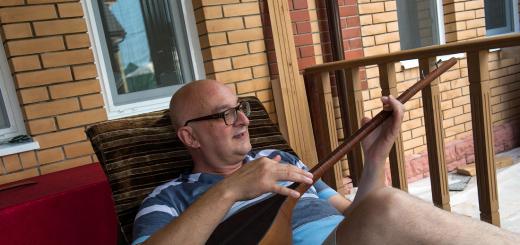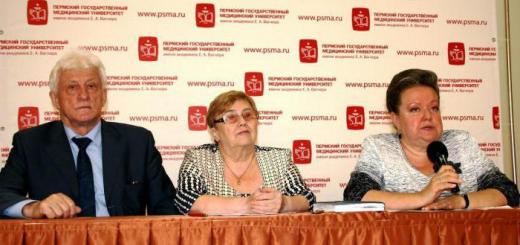A verification test based on the work of K.G. Paustovsky "Warm Bread" for students in grade 5. purpose: testing knowledge of the text.
This test contains 15 tasks.
Each task has 3 possible answers. At the end of the work, students can immediately find out their result.
Download:
Preview:
To use the preview of presentations, create a Google account (account) and sign in: https://accounts.google.com
Slides captions:
A test based on the work of K.G. Paustovsky "Warm Bread" Mayorova Tamara Viktorovna teacher of Russian language and literature MBOU "Secondary School No. 65"
Instructions for working with the test This test contains 15 tasks. Each task has 3 possible answers. You must choose the correct one. 3. If you have chosen the correct answer, a "plus" will appear. 4. If you chose the wrong answer, a "minus" will appear. 5. The transition to the next task is carried out by the button below. Good luck!
1. Determine the genre of the work. story true story - - +
2. The theme of the work: work and mutual gain care for animals people and nature - + -
3. The story of an old soldier is: a true story a legend a fairy tale - - +
4. The meaning of the word "warm" in the title of the work: possessing warmth, friendly warming the body, satisfying not hot enough - + -
5. The wounded horse stayed with: blacksmith forester miller - - +
6. The old magpie believed that it had helped Filka: having woken up the summer wind, having called the crows for help, having frightened the severe frost with its chirping - + -
Hatred of people's malice, human rudeness - - + 7. Grandmother Filka considered the reason for the severe frost a hundred years ago:
8. Filka realized that he had committed a disgusting, evil act when: he offended the horse, the frost intensified, he heard the story of his grandmother - - +
9. The image of the night landscape is: description narrative reasoning - + -
10. The stories of a disabled warrior and a wounded horse are united by a stylistic device: comparison of antithesis allegory - + -
11. In the sentence: “In the clear sky above the oskors stood the moon, adorned like a bride with pink crowns” - the phrase “like a bride” is: personification antithesis comparison - - +
12. In the sentence: “The wind ... rushed over the fields, whistling and chuckling at the frost ...” - the author uses: metaphor personification allegory - - +
13. In the sentence: “Outside the windows the air was thick, blue, scary" The highlighted words are: comparison epithets logical definitions - - +
14. The real salvation for the village is: the joint work of its inhabitants, the change in the direction of the wind, the timely help of the magpie - + -
Find out your score 15-14 correct answers 13-11 correct answers 10-8 correct answers 5 4 3
Materials used: E.Yu. Lipina Literature: tests for textbooks-readers, edited by T.F. Kurdyumova grades 5-9. Moscow, "Drofa", 2011. Literature. Grade 5 In two parts (edited by V.Ya. Korovina) Moscow, Enlightenment, 2011 O.B. Belomestnykh, I.V. Zolotareva Lesson developments in literature. Grade 5. Moscow, VAKO. 2010 Training simulator template - Zakharova T.A., Baidakova T.B. - www.itru/profil.aspx?cat_no=692&d_no=48111&all=1&page=3
Test based on the fairy tale by K. G. Paustovsky "Warm bread" Grade 5
Novik Nadezhda Grigorievna,
teacher of the Russian language and literature, SBEI JSC "Vychegodskaya SKOSHI".
1. Define the genre of the work
a) fairy tale
a) P.P. Bazhov
b) K.G. Paustovsky
c) V.V. bianchi
3. Theme of the work:
a) labor and mutual assistance of people;
b) care for animals;
c) man and nature.
4. The main character's name is:
a) Filka
b) Fedka
c) Pankrat
5. Action happens:
a) in the village of Ozerki
b) in the village of Kameshki
c) in the village of Berezhki
6. Why did the horse stay in the village?
a) He was injured.
b) That's what Pankrat wanted.
7. The horse took:
a) miller Pankrat
b) boy Filka
c) an old man from the village
8. The horse began to walk around the yards:
a) love to eat good food
b) it was difficult to feed
c) liked to walk around the village
9. What was Filka's nickname?
a) I don't know anything.
b) "Well, you!".
c) "Well, you!".
10. Filka lived:
a) with parents
b) with grandma
c) with mom
11. Filka by nature was:
a) silent, incredulous
b) sociable, trusting
c) kind, sympathetic
12. What bad deed did Filka do?
a) hit the horse on the lips and threw bread into the snow
b) drove the horse
c) hit the horse on the lips and gave nothing
13. What happened when Filka threw bread to the horse in the snow?
a) a blizzard has begun.
b) there was a flood.
c) there was a blizzard.
14. What story did Grandma Filke tell?
a) About how she once offended a soldier.
b) About how a peasant from the village offended an old soldier.
c) About how people offended the horse.
15. Filka realized that he had committed a disgusting, evil act when:
a) offended the horse;
b) frost intensified;
c) I heard the story of my grandmother.
16. How did Filka expiate his guilt?
a) He did not want to change.
b) Feed everyone.
c) Chop the ice with the guys at the mill.
17. When did the mill start working?
and in the evening
b) she broke forever
c) the next day
18. What was the magpie talking about above the dam?
a) That she woke up the summer wind.
b) That Filka is a bad person.
c) That she is the most chatty.
19. How did Filka make peace with the horse?
a) He asked for forgiveness.
b) He brought him fresh bread and salt.
c) He fed him carrots.
20. What is the story "Warm Bread" about?
a) About the need to be kind, sympathetic.
b) About evil sorcerers
c) About a trip to a desert island
21. Which proverb matches the content of the story?
a) There is nothing more courageous than victory over yourself.
b) Language will bring to Kyiv.
c) Business - time, fun - an hour.
22. The meaning of the word "warm" in the title of the work:
a) possessing heat, carrying heat;
b) warming the body, satisfying;
c) not hot enough.
Test based on the fairy tale by K. G. Paustovsky "Warm bread" Grade 5
Novik Nadezhda Grigorievna,
teacher of the Russian language and literature, SBEI JSC "Vychegodskaya SKOSHI".
1. Define the genre of the work
a) fairy tale
b) true story
c) story
a) P.P. Bazhov
b) K.G. Paustovsky
c) V.V. bianchi
3. Theme of the work:
a) labor and mutual assistance of people;
b) care for animals;
c) man and nature.
4. The main character's name is:
a) Filka
b) Fedka
c) Pankrat
5. Action happens:
a) in the village of Ozerki
b) in the village of Kameshki
c) in the village of Berezhki
6. Why did the horse stay in the village?
a) He was injured.
b) That's what Pankrat wanted.
7. The horse took:
a) miller Pankrat
b) boy Filka
c) an old man from the village
8. The horse began to walk around the yards:
a) love to eat good food
b) it was difficult to feed
c) liked to walk around the village
9. What was Filka's nickname?
a) I don't know anything.
b) "Well, you!".
c) "Well, you!".
10. Filka lived:
a) with parents
b) with grandma
c) with mom
11. Filka by nature was:
a) silent, incredulous
b) sociable, trusting
c) kind, sympathetic
12. What bad deed did Filka do?
a) hit the horse on the lips and threw bread into the snow
b) drove the horse
c) hit the horse on the lips and gave nothing
13. What happened when Filka threw bread to the horse in the snow?
a) a blizzard has begun.
b) there was a flood.
c) there was a blizzard.
14. What story did Grandma Filke tell?
a) About how she once offended a soldier.
b) About how a peasant from the village offended an old soldier.
c) About how people offended the horse.
15. Filka realized that he had committed a disgusting, evil act when:
a) offended the horse;
b) frost intensified;
c) I heard the story of my grandmother.
16. How did Filka expiate his guilt?
a) He did not want to change.
b) Feed everyone.
c) Chop the ice with the guys at the mill.
17. When did the mill start working?
and in the evening
b) she broke forever
c) the next day
18. What was the magpie talking about above the dam?
a) That she woke up the summer wind.
b) That Filka is a bad person.
c) That she is the most chatty.
19. How did Filka make peace with the horse?
a) He asked for forgiveness.
b) He brought him fresh bread and salt.
c) He fed him carrots.
20. What is the story "Warm Bread" about?
a) About the need to be kind, sympathetic.
b) About evil sorcerers
c) About a trip to a desert island
21. Which proverb matches the content of the story?
a) There is nothing more courageous than victory over yourself.
b) Language will bring to Kyiv.
c) Business - time, fun - an hour.
22. The meaning of the word "warm" in the title of the work:
a) possessing heat, carrying heat;
b) warming the body, satisfying;
c) not hot enough.
A game for a literary reading lesson based on the fairy tale by K.G. Paustovsky "Warm Bread" for 3rd grade students
Ryabichenko Nadezhda Vladimirovna, primary school teacher, Mikhailovskaya School, Kikvidzensky District, Volgograd Region
Material Description: This development of the game is intended for students of the 3rd grade and can be used by the teacher in the lessons of literary reading when consolidating knowledge of the work, as well as in extracurricular work on the subject.
Target: Consolidation and generalization of knowledge on Paustovsky's fairy tale "Warm Bread".
Tasks: develop thinking, imagination, memory, cognitive and intellectual abilities of students;
to cultivate interest in reading the works of Paustovsky.
Game progress:
1 task "Find a hero"The task contains a fillword in which you need to find the heroes of the work.

Answer: miller, horse, boy, old people, grandmother, women, guys, magpie

2 task "Know the hero"
Working with a presentation slide:
By pressing the “question” button, a question appears, by pressing the “answer” button, an illustration of the hero and the word-answer appear. When you click on the text of the question, the question disappears, the illustration of the hero and the word-answer.

1. He was silent, distrustful, his favorite expression was: "Come on!" (boy Filka)
2. Flour dust forever ingrained in him. She lay with a gray crust on his quilted jacket and cap. Quick eyes looked at everyone from under the cap. This man was quick to work, angry. The guys in the village considered him a sorcerer. (miller Pankrat)
3. She was old and experienced, she lived in the entrance hall of the miller Pankrat. She loved to show off very much, she believed that she alone managed to reconcile the horse with the boy Filka. (magpie)
4. His cavalrymen left in the village of Berezhki because he was wounded in the leg. (horse)
5. The heroine of a fairy tale who told Filka about how a man from their village offended a soldier a hundred years ago. After the soldier left, a misfortune happened, in the district a severe frost froze wells, birds, forests and gardens perished. (grandmother)
3 task "Quiz"
1. Who had a horse in the village when the cavalrymen left him in Berezhki? (at the miller Pankrat)
2. What work did the miller's horse do? (carried clay, manure and poles, helping Pankrat repair the dam)

3. Why did the horse walk around the yards, beg? (It was difficult for the miller to feed him)

4. Nickname Filka. (well you)
5. Who, according to the grandmother, could help the boy correct the evil he had committed. (miller)
6. How could Filka correct the evil he committed towards the horse? (he had to invent an escape from the cold)
7. What did Filka do, what was his decision? (he decided to gather all the guys in the village and cut ice at the tray near the mill)
8. Why was it necessary to cut the ice? (it was necessary to get to the water, without which the mill could not work)
9. Who helped the guys? (old men)
10. How many times did the miller have to turn the wheel to start the mill? (twenty)
11. Where did the magpie fly when he heard about the trouble? (to the south, to the warm sea, to wake up the summer wind in the mountains, tell the wind about the trouble and ask him to drive away the frost)

12. How did Filka make up with the horse? (he brought a loaf of fresh bread, broke it, salted it and handed it to the horse. At first the horse was afraid to eat bread, but when the miller said that the boy was not evil, he stretched his neck and took the bread from Filka's hands with his lips)

Task 4 "What is superfluous?"
In this task, after looking at the illustrations, you need to determine what people fed the horse when he came to their yard and knocked on the gate with his muzzle, asking for food.

The correct answer is beet tops, stale bread, carrots.
Excess - oats.
When you click on the illustration in the presentation, which depicts oats, the illustration disappears.
Presentation on the topic: Literary game based on Paustovsky's fairy tale "Warm Bread"
Option 1
Test according to the story of K.G. Paustovsky "Warm bread" Grade 5
a) birch forests; b) Berezhki;
3. Nickname Filka
a) "Well, yes"; b) "Nu Na";
c) "Well, you"; d) "Well, you."
a) bewilderment b) fear;
7. Explain the meaning of words and expressions:
a) don’t be scared…………..;
b) valet ……………
8. The events in the fairy tale "Warm Bread" take place:
a) during the Civil War;
b) after the Civil War;
d) after the Great Patriotic War.
Option 2
1. The events in the fairy tale "Warm Bread" take place:
a) during the Civil War;
b) after the Civil War;
c) during the Great Patriotic War;
d) after the Great Patriotic War
2. What was the name of the miller Pankrat in the village?
a) a veterinarian b) a wizard
c) a sorcerer; d) a mean old man.
3. Everyone in the village considered it his duty to have a horse.
a) stroke; b) pat on the neck;
c) bring to your yard; d) feed.
4. Filka, when he went out to the horse,
a) fed him bread; b) drink water
c) hit him with a whip; d) hit him on the lips.
5. Why, according to the grandmother, fell on the village a hundred years ago
bitter cold?
a) from human envy; b) from human malice;
c) from human gossip; d) from human resentment.
6. What did Filka come up with to make the mill work?
a) cut ice at the mill; b) turn the wheel of the mill;
c) wait for warm weather; d) ask for forgiveness from everyone.
7. What was the name of the horse?
a) Crow; b) Boy;
c) Wounded; d) baby.
8. Explain the meaning of words and expressions:
a) severe frost …………………;
b) pick……………………..

9. What is fabulous in the work?
10. What lesson have you learned for yourself?
Answers
Option 1
b
in
in
G
b
G
1
2
3
4
5
6
7 Don't be afraid
B servant
a
8
Option 2
a
in
G
G
b
a
b
Asil
heavy scrap for
ice breaking
9 Magpie, which flew for help to the warm
the wind, chatted;
Immediately after the cry, there was a severe frost.
1
0
10 points - "5"
9 points - "4"
68 points - "3"
Test according to the story of K.G. Paustovsky "Warm bread" Grade 5
Option 1
1. Name the village where the cavalry left the horse.
a) birch forests; b) Berezhki;
c) Berestevichi; d) Baranovichi.
2. The horse in the village began to walk
a) visiting b) work in the fields;
c) beg; d) in the nearby woods.
3. Nickname Filka
a) "Well, yes"; b) "Nu Na";
c) "Well, you"; d) "Well, you."
4. Filka, when the horse approached the gate,
a) took out bread; b) sprinkled bread with salt;
c) gave him bread; d) threw bread into a snowdrift.
5. What did Filka experience when there was a severe frost?
a) bewilderment b) fear;
c) did not understand anything; d) anger.
6. When Filka came to put up, the horse
a) went up to him and immediately took the bread;
b) immediately took the bread and went to the barn;
c) backed away from him and went into the barn;
d) shook his head, took the bread, put his head on his shoulder.
